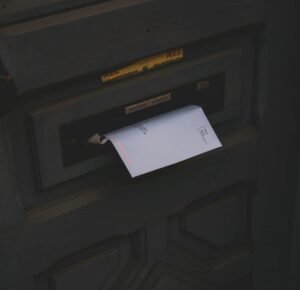The daily activities of running a business can be overwhelming to the point where you only think of how your business is doing but don’t know exactly how to better manage it. With proper tracking of business expenses, you can have a clearer picture of the state of the business. Tracking of businesses expenses allows you to have accurate bookkeeping that helps you to work towards breaking even, minimizing losses, and anticipating cash crunches.
With this knowledge, the decisions you make will be more informed, accurate, and will result in easier time such as when you are filing tax returns, auditing or even bankrolling your employees. The following are five ways on how to track business expenses and why it is important.
Digitize receipts with a receipt scanner
Paper receipts tend to become overwhelming when you try to sort them out such as when you are filing your tax returns. This is because they often become crumpled, the ink fades making it difficult to read, they may get torn, or even get misplaced. The problem becomes messier if you happen to mix both personal and business transactions making it difficult to tell which receipt is for which category.
With receipt digitization, you can avoid all this by ensuring you capture and electronically store every receipt. These can be stored in separate folders on your computer which would make it easier to peruse through should you want to clarify something.
To digitize the receipts, you will need a receipt scanner which makes a digital copy of the paper in its original and clean state. Digitized receipts also make it easy to check on your records remotely.
Use software to organize all your expenses in one place
Accounting and bookkeeping software is an essential tool for keeping track of the expenses of your business. By actively populating the software in all categories whenever you make a transaction, it will accurately do the bookkeeping for you and even generate cash flow statements for your business.
The use of software helps you to organize all your expenses in one place from which you can correctly assess the financial status of your business. It is important to include all categories including applicable sales tax if it applies to your business. You should also include expenses such as if you bought lunch for a client which should fall under the meals and entertainment category. Moreover, if you use personal resources such as your car for running errands for the business, this too should be recorded.
An example of such software, and one that we at Leftright Corporate ourselves use would be Xero. Especially since it not only has bookkeeping features but also offers bank integration.
Dedicated bank account and card for the business
When tracking the expenses of your business, it will be easier if you had a separate bank account for the business in comparison to if you used your private account. Separating the two makes it easier and faster to categorize expenses.
For incorporated businesses that may write checks in the name of the business, these must have a dedicated bank account explicitly offered as so by your bank. If it is a sole proprietorship where checks are signed in your name, have a separate bank account for the business.
Other than this, have separate credit cards where one is exclusively for your business purchases while the others can be used for other personal uses. With separate cards, you will avoid the headache of trying to remember and separate personal expenses from business expenses on the same receipt.
Integrate bank account with your accounting and bookkeeping software
Integrating your bank account with your accounting software allows for seamless and automatic importation of transactions in real-time.
With an integrated bank account, you will rarely miss a transaction as all of them are automatically categorized and can be retrieved at any time. You will, therefore, have less trouble in bookkeeping and receipting as this is done automatically and accurately by the software.
Regular reviewing and categorizing of business expenses
To ensure you accurately keep track of your business expenses, you should develop the habit of regularly reviewing all transactions and also ensuring they are properly categorized. This helps you to stay up to date with the state of your business. It also makes it possible for you to perform real-time assessments and can promptly respond to any anticipated challenge.
With regular reviewing of expenses, you will also get to know whether your business has been making losses or not, whether you have broken even or are yet to, etc. In case you are not sure of where you should categorize an expense, you can note it by, say circling it and reviewing it later.







